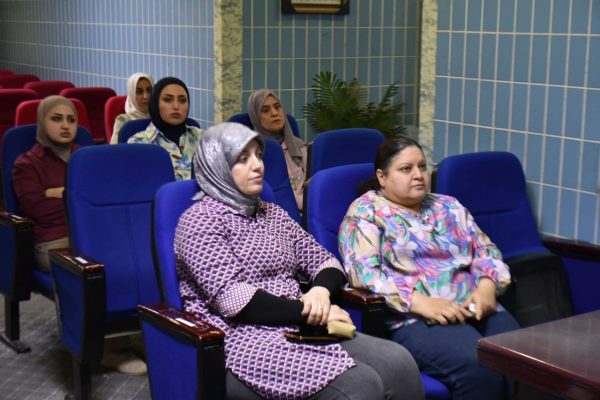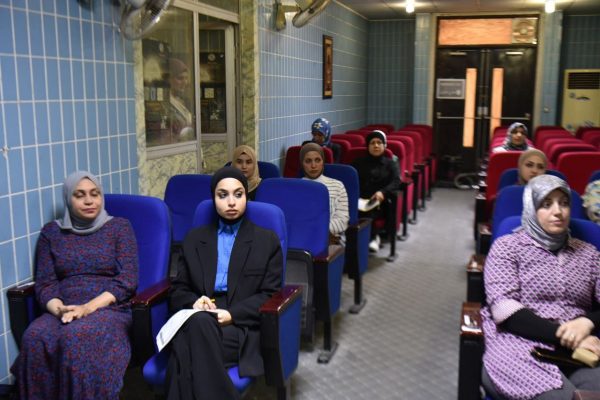Under the patronage of Prof. Dr. Sameera Naji Khdim, Dean of the College of Science for Women, the Department of Physics organized a workshop entitled “Scientific Achievements in the Civilization of Mesopotamia”, presented by Dr. Ali Dawood Saloom.
The workshop aimed to shed light on the contributions of ancient civilizations to the development of science. It explored the most prominent innovations introduced by the scholars of Mesopotamia in the fields of physics, astronomy, mathematics, and engineering. Historical evidence and cuneiform inscriptions documenting these achievements were reviewed, highlighting the Mesopotamians’ understanding of the laws of motion and their use of simple tools to measure time and determine the positions of celestial bodies.
The workshop also discussed the development of the sexagesimal (base-60) numerical system, whose influence remains evident in modern systems of time and angular measurement. Furthermore, it addressed the lasting impact of these scientific contributions on subsequent civilizations and the pivotal role Mesopotamian scholars played in laying the foundations for modern physics.
The event was marked by high levels of engagement and rich scientific discussions, which significantly broadened the participants’ perspectives on the scientific heritage of Mesopotamian civilization.











